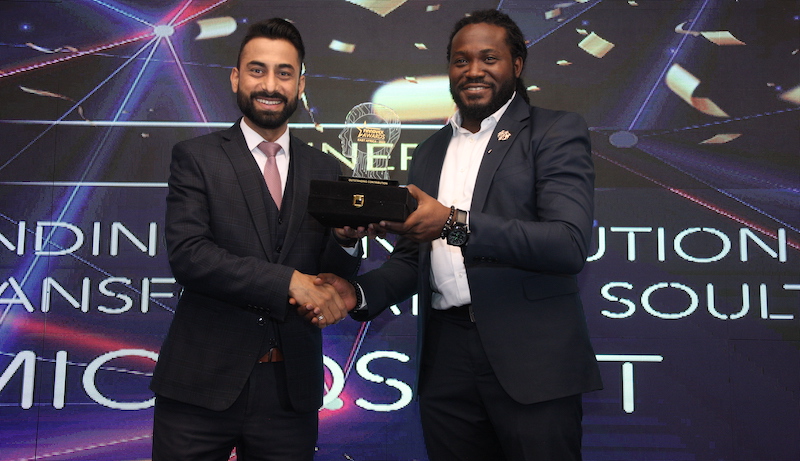
If banks are to adequately compete and address the challenge posed by the growing influence of fintechs into their space, they will need to modernize their systems to exceed the services offered by these financial technology players.
This was one of the conclusions reached at the 11th Finnovex East Africa Summit, which focused on, among other things, the intersection of the financial services industry and technology. While speaking at the event, Wole Odeleye, Technology Industry Lead, Financial Services at Microsoft stated that banks would need to compete strategically in the four areas of lending, deposits, savings, and payments because these are where they generate much of their revenue.
“As organisations, financial institutions must consider the outcomes they wish to deliver and work backwards from there, defining those outcomes clearly and consolidating the understanding of those outcomes across the business before considering which enablers, both technology and non-technology, are required to deliver them,” Odeleye said.
The second strategy would be to collaborate with fintechs, some of which provide niche capabilities that banks can leverage rather than recreating. “By leveraging partnerships, they can layer fintech services on top of their own foundations – corporate banking or retail banking services – and deliver them to customers as packaged services,” Odeleye explained.
According to Odeleye, the third option, which a few banks have taken, is complete acquisition for those banks with growth strategies that target different industries. “For example, a bank that has traditionally focused on commercial banking and wants to diversify into capital markets and investments may consider buying a fintech that has established specialized services and a critical mass of customers in that space,” Odeleye explained.
The forum heard that digital transformation empowers intelligent banking, allowing organisations to deliver differentiated customer experiences that accelerate growth and loyalty while modernising payments and core banking. Microsoft believes that any successful digital transformation initiative is enabled by two things.
The first is the digital capabilities itself, in terms of tools and platforms. “Data is the driver of digital transformation,” Odeleye remarked. Organisations must identify the new capabilities required, across data and cloud, and then to look at how they can modernise their systems, their structure, and their applications, to ultimately change the way people work and how the organisation delivers value to the consumer base. “Organisations must ensure that they are using the right tools and using technology in the most creative and intelligent way to deliver value,” he stated.
The second aspect to tech intensity, he explained, is developing human capacity. “The capacity development initiative must address the knowledge gaps in both technology and business teams to comprehensively grow the digital IQ of the organisation. Only when this digital IQ has been properly scaled up can organisations successfully realise the value from the deployment of tools and services within the organisation.” Organisations must rethink how they enable reskilling, and how they mandate human capital management to orchestrate digital IQ development end-to-end, he added.
Follow us on Telegram, Twitter, Facebook, or subscribe to our weekly newsletter to ensure you don’t miss out on any future updates. Send tips to info@techtrendske.co.ke




